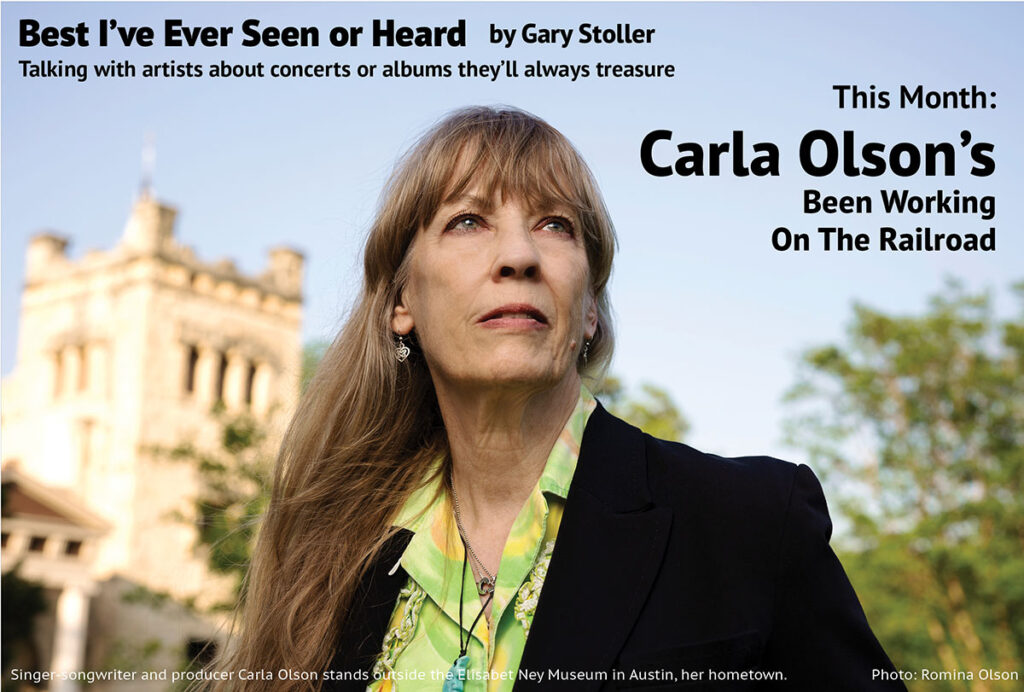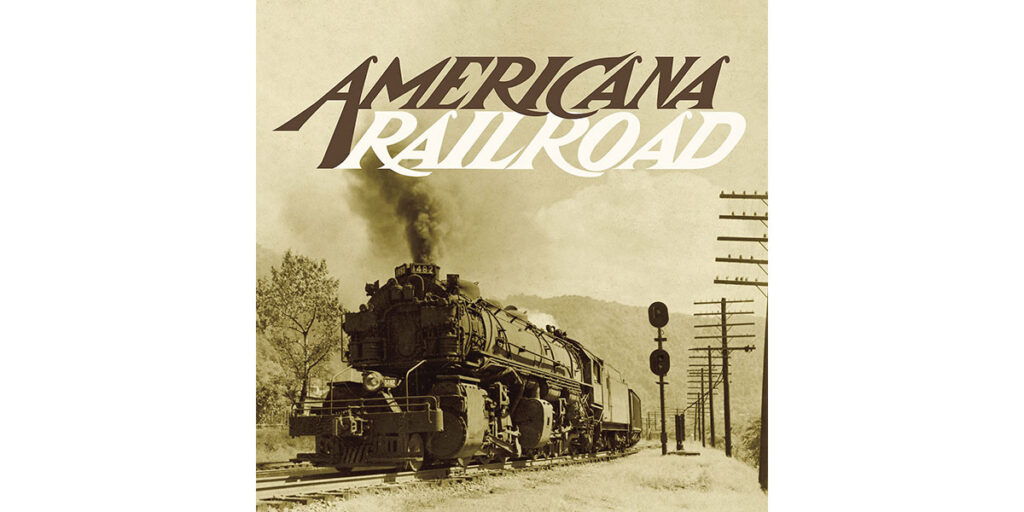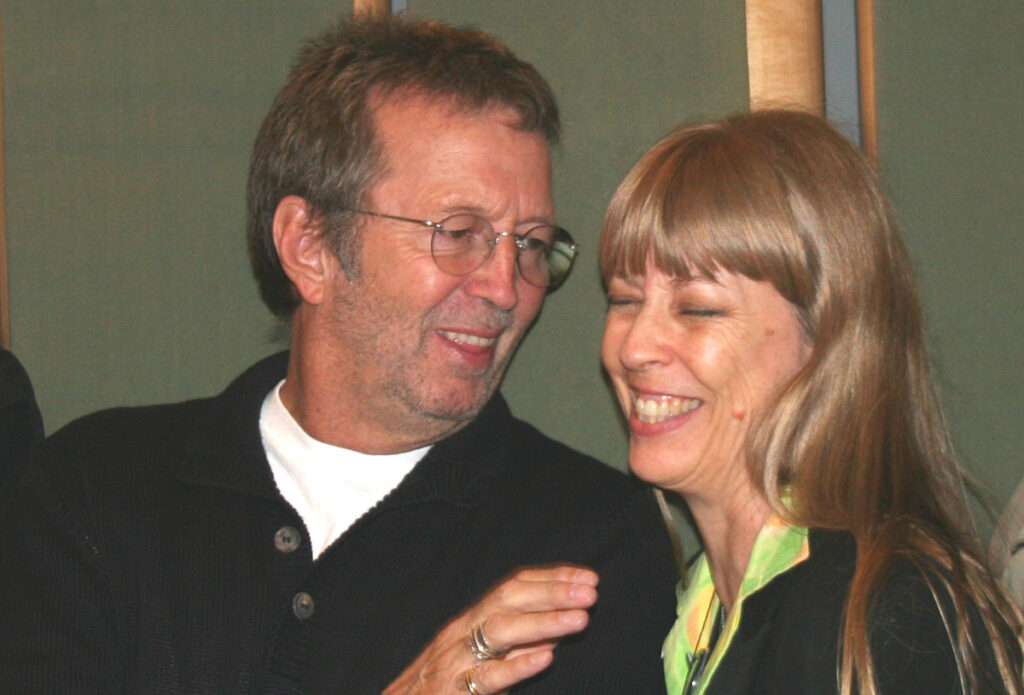
Photo: Romina Olson
America’s railroad heritage dates back to the 19th Century when steam-powered trains began replacing horses and buggies to transport passengers. It’s a proud history that now, 200 years later, Carla Olson wishes to honor.
The singer-songwriter, who founded the Textones and recorded duo albums with the Byrds’ late singer-songwriter Gene Clark, has teamed with her husband Saul Davis to produce a new album Americana Railroad. Among others, the 19-track album features performances by Olson, John Fogerty, Dave Alvin, Barry Goldberg, Peter Case and Clark’s son, Kai Clark.
“The fabric of American history is woven with the first trains bringing freight from coast to coast, then passengers seeking a more comfortable mode of transportation than by stagecoach,” Olson explains to me. “The songs of late 19th and early 20th Centuries included trains and whistle stops as colorful subject matter. Americans knew the trains by their names — such as the City of New Orleans — rather than their routes. Train transportation ruled supreme until the advent of the automobile.”
About 20 years ago, Olson and Davis first thought to create an album of train songs with Gene Clark’s I Remember the Railroad and Stephen McCarthy’s Here Comes That Train Again “as the nucleus,” Olson says. McCarthy, who has played with the Long Ryders, the Dream Syndicate and the Jayhawks, performs both songs with Olson on Americana Railroad.
Olson and Davis then thought a third song belonged on their train-song album, Train Leaves Here This Morning, a song written by Clark and Bernie Leadon that was recorded by the Eagles. On Americana Railroad, the song is performed by Kai Clark and the late bluegrass fiddler Byron Berline, who died last year.
“It took us a lot longer than expected to see Americana Railroad to fruition,” says Olson, who has produced many musicians’ albums.

Besides the new album’s songs, Olson has some other favorite railroad songs: “Last Train to Clarksville” by the Monkees, “Kansas City Southern” by Gene Clark and “Rock Island Line” by Johnny Cash. “Great songs sung by great voices!” Olson remarks.
I ask Olson when she last traveled on a train.
“We take the train from Union Station in Los Angeles to Upland, California, to rehearse with John York (the former Byrds bassist who performs John Stewart’s “Runaway Train” on Americana Railroad),” Olson says. “It’s a great little getaway — bring your lunch, read a little.”

Olson says she loves to sing with York. They sang two songs, Paul Kennerley’s “The First in Line” and P.F. Sloan’s “Upon a Painted Ocean,” on Olson’s 2013 album Have Harmony, Will Travel.
The songs on that album and its sequel, 2020’s Have Harmony, Will Travel 2, are duets. Olson says her favorite duet on the two records is “Del Gato” with Gene Clark. It was written by Gene and his brother Rick and initially released on the 1987 Gene Clark & Carla Olson album So Rebellious a Lover.

Photo: Gary Nichamin
Speaking of favorites, I ask Olson what are the three best albums she has ever listened to.
“Such a difficult question,” she replies, “but here goes: Jimi Hendrix’s Axis: Bold as Love, the Yardbirds’ Having a Rave Up and A Hard Road by John Mayall & the Bluesbreakers is tied with Sticky Fingers by the Rolling Stones.”
Olson recalls carrying four albums and a 1956 Gibson Les Paul Jr. with her a day after her high school graduation when she left for Rome to live with her brother. The four albums were Creedence Clearwater Revival’s Green River, B.B. King’s Completely Well, Déjà Vu by Crosby, Stills, Nash & Young and Eric Johnson’s Mariani.
Five years ago, Olson told me the best concert she ever saw was the Jimi Hendrix Experience and Soft Machine at the Municipal Auditorium in San Antonio, Texas, on Aug. 2, 1968, and the most influential concert she attended was the Rolling Stones at San Antonio’s Convention Center on June 3, 1975. Does she still feel that way?
“I still believe that Jimi in 1968 was the most impactful concert I’ve ever seen,” she responds. “I was playing electric guitar at that point, so it gave me a look at what it takes to entertain people. The Rolling Stones concert in 1975 further solidified the idea that I was a musician and would always be.”

Photo: Lee Davis
Olson is probably best known for her collaborations with other artists, including Gene Clark and the Rolling Stones’ Mick Taylor, and her cover versions of other artists’ songs. She has, however, written many of her own songs, so I ask her which ones she considers her best.
She points to “Number One is to Survive,” a “very personal story about my father,” on the first Textones album, 1984’s Midnight Mission. She also points to her 1992 song “Why Did You Stop” which Percy Sledge recorded on his 1994 album Blue Night.
With so many experiences in the music industry, I ask Olson which chapter of her musical career is the most meaningful and rewarding. She provides a simple answer: “walking on stage every time to give to and get back from the audience.”
